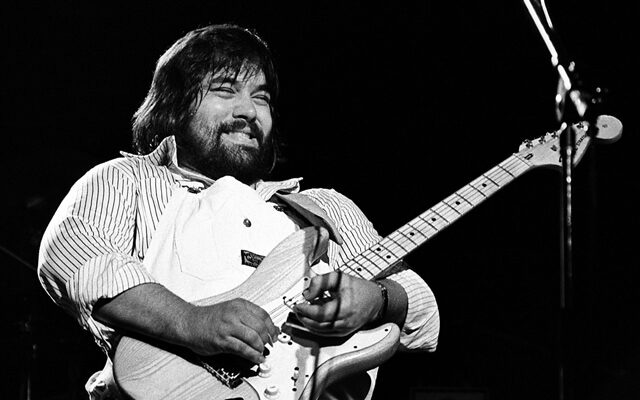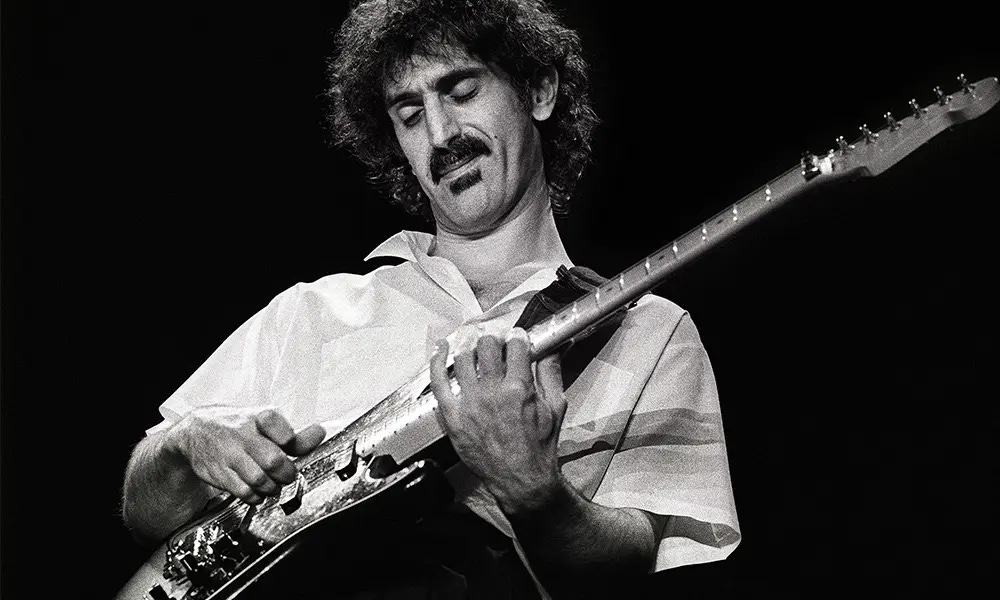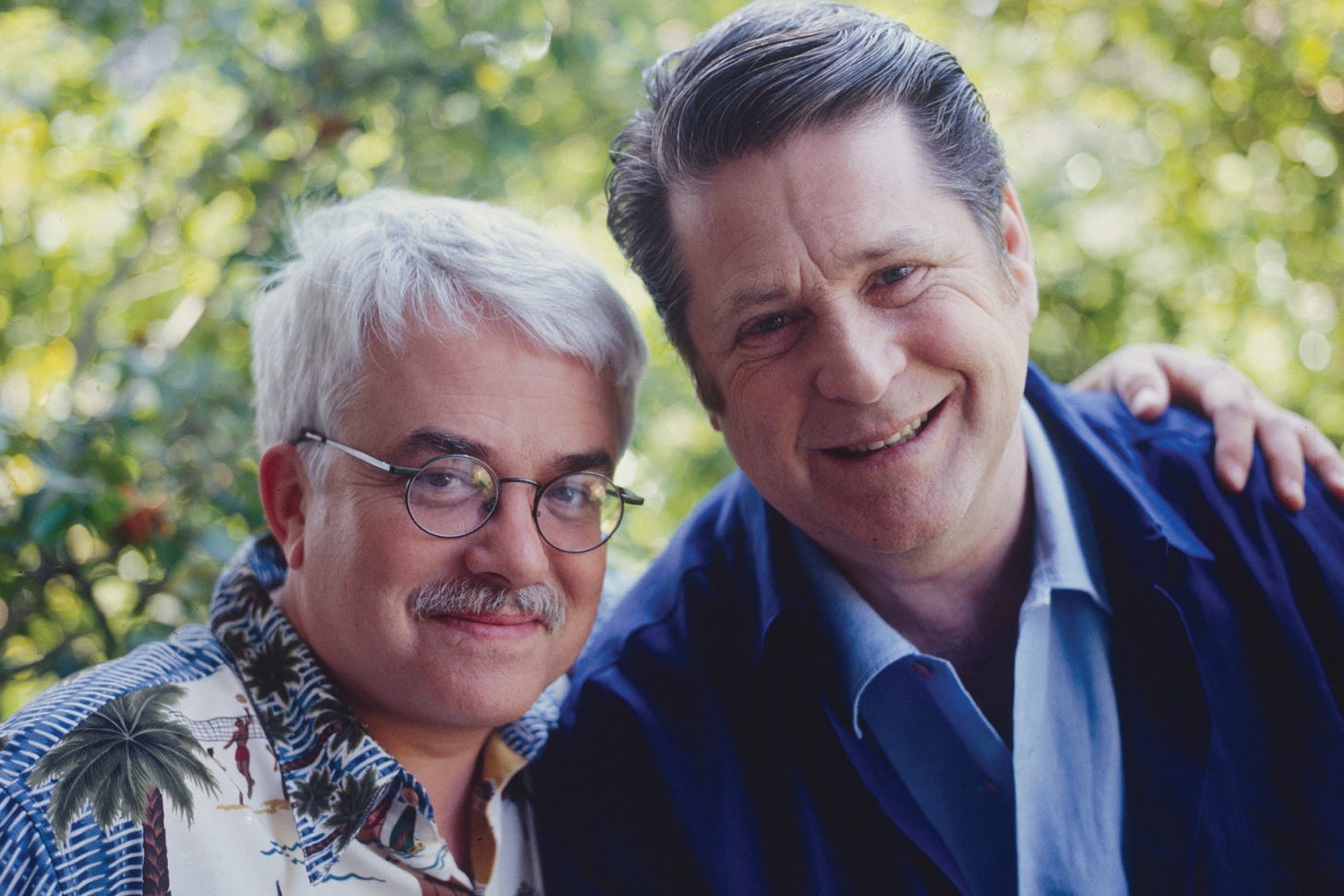IMDb page.
On FreeVee.
Music history is full of artists who died too young. What might they have given us, if they’d survived? Here are some of the pop artists. And then in classical music we have Schubert ( 31), Mozart (35), Gershwin (38), Mendelssohn (38), and Bizet (36).
Maybe you’re one of those folks who aren’t too familiar with Little Feat? If so, take some time now and listen. The live double album Waiting for Columbus is the one to get if you’re only getting one. This is a TV appearance they made at about that same time:
The music is a blend of blues, country, funk, New Orleans, and almost every other strain of American music. The live album was recorded when the Feats were at the very peak of their powers, even though, as the movie tells us, major strains within the group were showing. More on that later.
Lowell George was only 34. The cause of his death is called “heart attack” in the movie, but we’re given to understand that no one believed that. He was a well-known drug abuser, and had become morbidly obese, weighing 300 pounds at his death.
This movie is more of a musical biography than an actual biography; otherwise, we wouldn’t suddenly be told that he had a wife and child when he brings them to Baltimore! Nonetheless, the music is front and center, and if you loved Little Feat, you should watch this.
Willin’ is probably his best-known song. Linda Ronstadt covered it and many other stars did as well. The genre of truck drivin’ songs in country music is huge; you can find multiple lists of the best 50 or the best 100, and amazingly, none of them include Willin’! If we look at a few of these, nearly all have a reference to home, family, or just the romance of the trucking life. “Whites” (stimulant pills) are generally accepted, but “weed, whites, and wine?” Nope. The narrator of Willin’ is simply willing to keep doing it.
Lowell George was an authentic musical genius. He played the flute in his high school band, even though there was some debate about whether he could even read music. Not only that, but he was personable, witty, and everyone loved and wanted to hang out with him. Several people say that he could have succeeded at anything he tried. He injured his hand building a model airplane, and thus was forced to learn to use a slide on the guitar instead of fretting it. Of course, he mastered slide; in fact, he created his own style, different from any of the other great players. We learn, in detail, what his slide was (a Sears socket, not a glass bottleneck) and how he compressed the sound afterwards so it was all the same volume.
We do see some childhood pictures of him. He grew up in the LA area, went to Hollywood High so he wasn’t intimidated by show business, and was on the Sunset Strip during the period covered in Echo in the Canyon. He formed a group The Factory, which had some minor success. They opened for The Doors and The Mothers of Invention. If you watch that video of The Mothers and think it’s musical chaos, just realize that it’s all written out, and Frank Zappa
drilled the band relentlessly until they got it right. He thought that using only one time signature in a piece was boring.
Lowell’s connection with the Mothers proved significant, as Herb Cohen, who managed them, also took him on. Later he actually played with Zappa, who was, by all accounts, a stern taskmaster. He was fanatically anti-hippie and anti-drug, which posed a problem for Lowell, who was a pothead. He played Willin’ for Zappa, who said, “You should start your own band.”
He was obsessed with Howlin’ Wolf, the legendary Chicago bluesman
whose real name was Chester Burnett, which led to Lowell’s simple question for determining if someone was worth his time: “Is he versed in the ways of Chester Burnett?”
Finally, his band came together. Bill Payne,
a pianist from Ventura, hit it off with Lowell. Richie Hayward, the drummer, was as talented as Lowell. The three of them formed the core of Little Feat, along with Paul Barrere, Kenny Gradney, and Sam Clayton, and their sound came together into what you hear in that video at the start.
They played at The Troubador and got interest from a number of record labels, finally signing with Warner Bros. Their first album, in August 1971, was ignored by almost everyone, Lowell was unhappy with it, and Warner Brothers was on the point of dropping them.
Van Dyke Parks (on the left with Brian Wilson)
had an A&R role at Warner, and he helped save them.
Van Dyke Parks is one of those rock ‘n’ roll figures who were always prominent but no one knows them.
Sailin’ Shoes was the 2nd album, in May 1972, that did a little bit better. It got unanimous critical praise. The threat of being dropped by his record label had receded for the moment.
Dixie Chicken continued a run of well-received albums. They played a notorious show at the Rainbow Theater in London, opening for The Doobie Brothers. The crowd loved them so much that even after the Doobies started, they continued to yell “Feat! Feat!” and the MC pleaded with them to let the main attraction play.
Feats Don’t Fail Me Now featured Rock ‘n’ Roll Doctor, the title song, Oh Atlanta, Skin It Back, and Spanish Moon. This was peak Feat.
It wasn’t enough for Lowell George. He felt Warner Brothers wasn’t behind him. He even put on a chicken suit and went to radio stations. He became obsessed with everyone else’s needs. At this point in the movie, knowing that he died so young, I went into a meditation on fame and greatness.
There’s a famous quote, “For those to whom much has been given, much is expected.” He definitely had Much given to him. He could do anything, and he knew it. He thought he had to be Paul McCartney, Howlin’ Wolf, Buddy Holly, and Elvis Presley all rolled into one. We don’t get a lot of psychoanalysis in this movie, so we just have to read between the lines.
When you read the history of a lot of young pop groups, there are at least three big pitfalls to get past: drugs, personal and artistic differences, and bad record contracts. Bingo on all three with the Feats:
Drugs: we covered that one.
Differences: Bill Payne and Paul Barrere began to be more interested in jazz fusion, particularly the group Weather Report. Payne admired Joe Zawinul’s keyboards. Lowell had no interest in that whatsoever. This is the point where a rational group would just agree to go their separate ways: they did great work together, but now it’s complete. Perhaps they felt they hadn’t gotten the success they deserved yet.
Record deals: What artists are ever satisfied with their record label? With that said: Warner Brother’s Mo Astin reportedly said, when told that Lowell George was dead, “Is he insured?”
A record label signs an artist because they think they can make money from them. Sometimes it also finds some benefit in nurturing his or her artistic growth, and sometimes not. It doesn’t seem like Warners did with him.
Lowell was contractually obligated to deliver a solo album to Warner, after they’d backed the earlier Feats albums. He made Thanks, I’ll Eat It Here which almost no one liked (listening to this on YouTube: it’s not that bad). He went on tour to support the album, and during the tour he died of… whatever it was. So sad.






